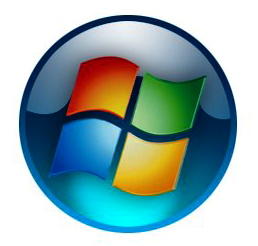
Google and HP recall 145,000 Chromebook 11 chargers for fire hazard
As someone who has lived through a home fire, I am very anxious about it. Any time I smell a neighbor's fireplace, I will investigate. I am still haunted by the night that I lost all of my belongings -- standing barefoot in the street watching the brave firemen fight the blaze.
When Google stopped sales of the HP Chromebook 11 due to a faulty charger, I was faced with a major conundrum. I love using that computer, but now I was scared to charge it. Even though Google suggested charging it with any other microUSB charger, I was still too concerned to leave it charging unattended. Plus, when I did use a different charger, I got a warning message that the charger was underpowered and charging would take longer. Finally today, the Consumer Product Safety Commission announces an official recall of the dangerous charger.

Gallows humor for the NSA privacy debate
It’s hard to believe sometimes, but I began writing my columns -- in print back then -- during the Reagan Administration. It was 1987 and the crisis du jour was called Iran-Contra, remember it? Colonel Oliver North got a radio career out of breaking federal law. The FBI director back then was William Sessions, generally called Judge Sessions because he had been a federal judge. I interviewed Sessions in 1990 about the possibility that American citizens might have their privacy rights violated by an upcoming electronic surveillance law. "What would keep an FBI agent from tapping his girlfriend’s telephone?" I asked, since it would shortly be possible to do so from the agent’s desk.
"It would never happen", Sessions said.

Should companies stick to their guns or give in to customer demands?
The customer is always right, right? As a customer it is understandable that this old adage seems like something set in stone, but looked at from a company's point of view things are rather different. A large proportion of customers are in fact idiots. While it is reasonable to expect a company to listen to what its customers have to say, does this risk stifling innovation as customers demand that things be done a certain way?
Here on BetaNews we've had a little debate about whether Microsoft should reintroduce the Start menu. Despite the number of people calling for its return, Brian does not think it is a good idea saying that "the company should ignore these customers, even if they are the majority". I am of the opinion that it would be good to at least make it optional, particularly for enterprise customers.

Stop being so bloody-minded, Microsoft -- bring back the Start menu!
Unlike my colleague Brian Fagioli, and many other disillusioned users, I think Microsoft made a serious mistake when the Start menu and button were removed from Windows 8. The company practically admitted as much when Windows 8.1 saw the reintroduction of the Start button. But this was simply not enough. Windows is all about the Start menu, and for many people the Start button and Start menu are so inextricably linked that to have either without the other just makes no sense.
Sure, we have the Start screen in Windows 8.1 and from it you can achieve pretty much what you were able to do with the Start menu. But it is not the same. Windows 95 was all about the Start button and the Start menu that it conjured up. Yes, we may be the thick end of 20 years down the line, but this is at least partly the point. We have had almost two decades to get used to a particular way of working. It would be strange if there wasn’t a backlash against something we have become so used to.

Microsoft would be foolish to return the Start Menu to Windows
The year 2013 has been a roller-coaster ride for me -- full of surprises when it comes to computing. After all, I am a self-proclaimed Linux user who fell in love with Windows 8. While I struggled with the operating system, I have ultimately settled in with it (Windows 8.1 helped improve the experience).
However, I am a bit dismayed -- no, livid -- that Microsoft is allegedly considering bringing the Start Menu back in the next version of Windows (code named "Threshold"). While it is only a rumor thus far, it warrants some consideration. The Modern UI is the future of Windows and Microsoft should not listen to naysayers. In other words, the company should ignore these customers, even if they are the majority.

Don’t wait for Windows 'Threshold', get a Start button and menu in Windows 8.1 NOW
According to Microsoft watcher Paul Thurrott, Windows 8.2, or "Threshold" as it’s apparently being referred to internally at Microsoft, could see the return of the Start menu for desktop users. "After bringing back the Start button in Windows 8.1, Microsoft will take the next logical step in the next Windows version and make the Start menu available as an option. It's possible this will appear only on those product versions that support the desktop", claims Thurrott. He also suggests Threshold will allow users to run some Modern UI apps on the desktop, as you can using ModernMix.
The absence of a real Start button and menu is seen by many as one of the main reasons why Windows 8.x is doing so badly. The Start button and Apps screen in Windows 8.1 is -- for me -- a great compromise, but it seems many consumers would rather just have things back how they were, and if Thurrott is right those disgruntled users might finally get their wish when Threshold arrives sometime in 2015. Don’t want to wait that long to get a proper Start menu in Windows 8.x? The good news is there are plenty of quality third-party options available now.

Sneaky Android malware calls premium rate numbers when you’re not looking
You might think that dialer malware went out with dial-up modems and that in these days of broadband you don't need to worry about viruses that call premium rate numbers in order to earn criminals money.
But researchers at mobile security specialist Lookout have uncovered a new piece of malware called Mouabad.p that tries to make money by making calls from your Android smartphone. Of course smartphone fraud involving premium SMS messages isn't new but making calls represents a step up in the malware's functionality.

According to Google, authentication standards are thwarting phishing emails
Phishing scams are a blight on the internet that will never be totally eradicated. If you aren't familiar with the term, "phishing" is when someone attempts to glean information through means of impersonation. Sending you a message purporting to be from your bank for example. Try as we may, this crime will always be a part of life. However, there is no reason that the risk of these dangerous emails cannot be decreased.
Since 2004, various groups have been slowly developing authentication standards, in an attempt to thwart these malicious messages. Today, Google has some great news -- the standards are working.

FTC charges Android flashlight developer with leaving users in the dark about data usage
The permissions screen that pops up during the installation of an Android app has become the new EULA. Very few people bother to read through what is on screen before clicking through and going ahead with the installation -- you could be signing your life away for all you know!
Apps will let you know if they make use of your location, have access to your contacts, could send messages on your behalf and numerous other things. But in the case of Brightest Flashlight Free it turned out that the app was not only sharing users' location and device ID information with third party advertisers, but it was doing so secretly.

I'm returning my PS4 -- Sony secretive on PlayStation Network 'irregular activity'
I'm returning my PlayStation 4. It's a shame because I love it very much. The games are wonderful and the streaming video capabilities are very useful. However, I simply cannot trust the PlayStation Network. The old saying is "fool me once, shame on you; fool me twice, shame on me". After the first PSN hack, I should have known not to trust it. But here I am in 2013 with a PlayStation 4 -- shame on me.
Today, I received an email from Sony that says, "the Sony Entertainment Network team routinely monitors for any irregular activity, and if such activity is detected, we may sometimes reset passwords of affected accounts to protect consumers and their account information. Your account password was recently reset as part of this process". Oh my. Surely a call to Sony will give me more details right? Wrong.

Going mobile is too difficult and too expensive say CIOs
Given all of the current buzz surrounding mobile you'd think that businesses would be falling over themselves to embrace the technology. But a new survey of IT decision makers by enterprise application and security expert Mobile Helix shows that whilst 78 percent of enterprises have a mobile strategy, 86 percent are not using it to transform their business.
The survey of 300 CIOs in the UK and US reveals that 87 percent think that their employees would benefit from mobile access to enterprise applications. However, many of them are reluctant to invest. Complexity is cited by 66 percent as a reason not to pursue a mobile strategy, with 72 percent saying it's too costly to integrate mobile innovations into legacy applications. Development, security and support concerns are also listed as limiting factors.

Google makes its Compute Engine generally available -- and cheaper
Most businesses by now will have heard of the Google Cloud Platform which lets developers run applications on Google's servers. The company today announces general availability of its Google Compute Engine offering scalable, secure virtual machines running Linux.
In its preview phase Compute Engine supported only Debian and Centos running with a customized Google kernel. It now supports any out of the box Linux distro so that developers can work with a familiar environment but also support software that needs a specific kernel or file system.

Global PC shipments record sharpest annual decline EVER
It seems like we’re forever posting stories about the decline of the PC, and here’s another one. This time, IDC is delivering the bad news, and make no mistake, it is bad news. Catastrophic news in fact, because IDC says worldwide PC shipments are experiencing the "most severe yearly contraction on record".
Shipments were expected to fall by 9.7 percent in 2013, but IDC has revised that estimate to a worse 10.1 percent. Next year the outlook isn't expected to be quite as bad, but things are still going to be very bleak, even in emerging markets, the traditional primary growth area for the PC.

Over half of parents will put technology under the Christmas tree
According to a new survey by broadcaster PBS KIDS more than half of parents (54 percent) plan on buying technology gifts for their offspring this Christmas. That figure rises to 59 percent for younger, more tech savvy parents.
Top of the shopping list are tablets, featuring in 28 percent of parental intentions, with games consoles on only 18 percent. Combine tablet and smartphone purchasing intentions and 36 percent of parents will be buying.

Banning bad reviews undermines the very purpose of reviews
In an interview with Poynter back at the beginning of November, BuzzFeed book editor Isaac Fitzgerald said that the site will not include negative reviews. "Why waste breath talking smack about something? You see it in so many old media-type places, the scathing takedown rip. If you can’t say something nice, don’t say nothing at all". Is this the right attitude to adopt? I won't even pretend that this is a rhetorical question. It is absolutely the wrong attitude, and any publication that adopts it does both itself and its readers a disservice.
Of course, Fitzgerald was talking specifically about book reviews, but the danger is that other publications follow suit. His justification for this line of thinking is that people understand that authors "have worked incredibly hard, and they respect that. The overwhelming online books community is a positive place". But this is hardly a reason to avoid negative reviews. The fact that someone has worked hard on something in no way means that it is automatically worthy of praise.
